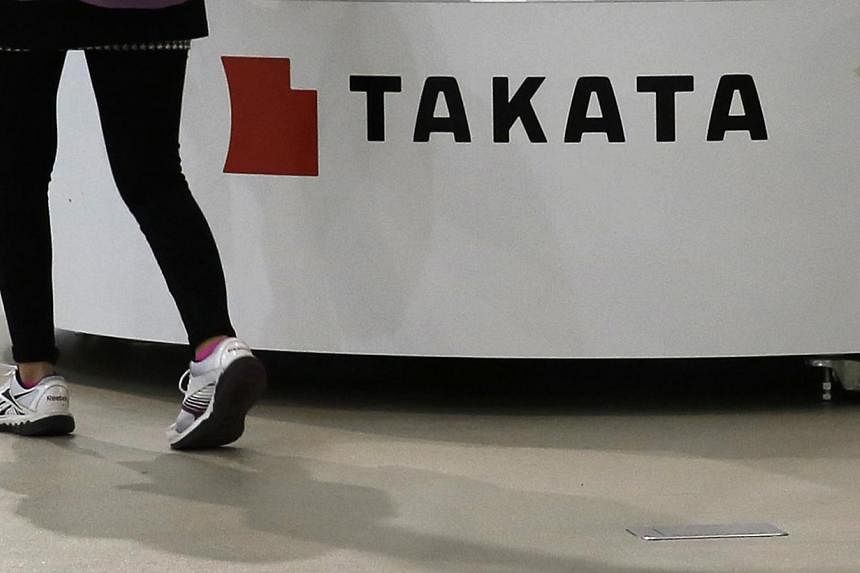KUALA LUMPUR - A Malaysian woman who was killed after an abnormal rupture of a Takata-made airbag during a car crash was pregnant and her foetus died too, according to carmaker Honda.
It was the first known fatal crash tied to faulty Takata air bags outside the United States, Bloomberg News reported. The accident took place on July 27 but was only disclosed by Honda on Thursday.
The case involved a 2003 Honda City subcompact that was manufactured in Thailand, and the air bag was made in a Takata plant in Georgia, Bloomberg quoted Mr Jordhatt Johan, head of public relations at Honda Motor in Kuala Lumpur, as saying.
The automaker is recalling more than 15,700 vehicles in Malaysia, he added.
"The driver crushed her vehicle into another vehicle, and the driver's SRS air bag was deployed abnormally and the inflator case was broken," Mr Jordhatt said, declining to provide the name and other details of the victim.
"She was pregnant and the foetus also died."
Bloomberg quoted a New Sarawak Tribune report dated July 31 as saying that a 43-year-old pregnant woman died on the way to hospital after a road accident in Sibu town in Sarawak on July 27.
The newspaper reported that although doctors managed to remove the foetus alive, the baby died in an intensive care unit on July 29.
Mr Jordhatt, however, said he could not confirm the details in the report.
Takata Chairman Shigehisa Takada has "deeply apologised" for the Malaysia incident, the grandson of the 81-year-old company founder said in a statement on Thursday.
Honda was notified of the July accident one month later and is now recalling 170,000 additional vehicles worldwide because of a problem traced back to a Takata plant in Georgia, said spokesman Akemi Ando.
Takata has already disclosed issues with factories in Moses Lake, Washington, and Monclova, Mexico, in US regulatory documents.
Thursday's expanded Honda recall involved five models including the Fit and the Civic, Ms Ando said. The company will call back about 70,000 units sold in Japan, as well as vehicles in China, Europe and other overseas markets. None of the vehicles were sold in North America.
There were four other deaths linked to the Takata airbags in the US, including one in Florida that police first investigated as a murder because of gashes to the driver's throat, according to Bloomberg.
Faulty air bag inflators made by Takata have ruptured and spewed metal fragments at passengers, prompting safety campaigns by automakers including Toyota Motor Corp. and General Motors Co.
Washington Post said the crisis - affecting at least 10 automakers - is intensifying. While Honda has now called back almost 6.2 million vehicles globally over Takata air bags since 2008, the four deaths linked to the devices previously were all in the United States.
"This just got further out of control, and we should look out for more problems in Asia," said Mr Ashvin Chotai, managing director of researcher Intelligence Automotive Asia. "This is just a nightmare, for regulators as well as for automakers and Takata. How do you contain this now?"
This is the biggest test in Takata's 80-year history and it is facing lawsuits, a possible criminal probe, and accusations of "deception and obfuscation" over the defect.
The New York Times has quoted former Takata employees as saying that secret tests were conducted a decade ago to investigate the defect, but executives ordered the destruction of data that exposed design flaws.
But Takata has denied the report, saying the tests were carried out on an airbag part that was unrelated to the inflator mechanism at the centre of the problem.
"Our company did not carry out such test (on inflators) in 2004, and we absolutely did not cover up test results, as reported in the story," Agence France-Presse quoted a Takata statement as saying.

